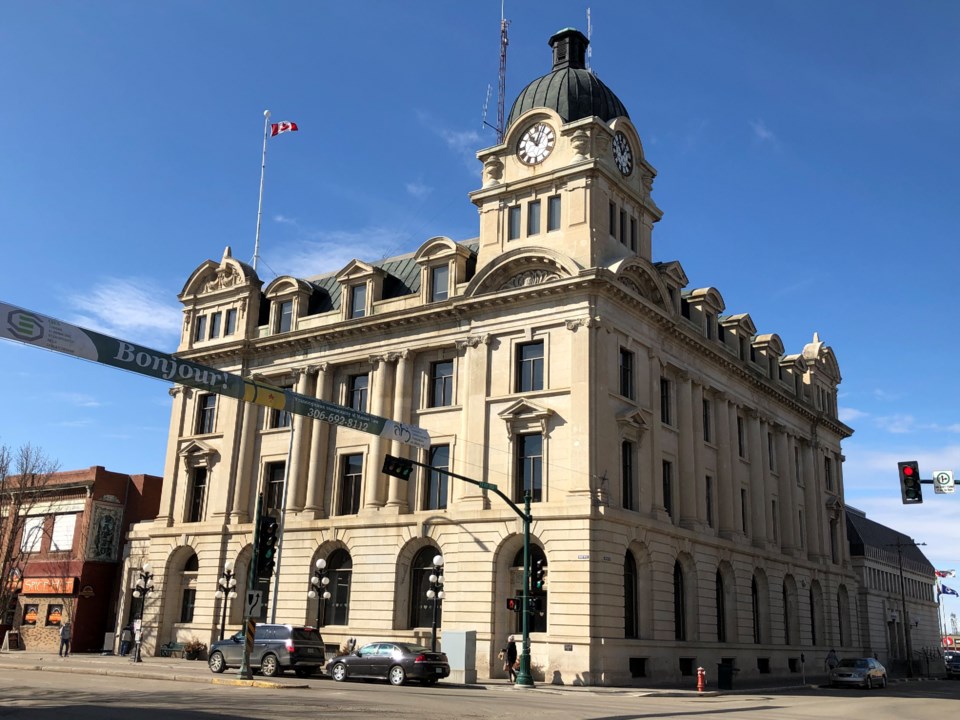MOOSE JAW — City council has agreed to grant temporary exemptions from the municipality’s building bylaw so that two developers can move 13 homes into the community without facing “unnecessary delays” or red tape.
Council voted 6-1 to the temporary exemptions during its Sept. 9 regular meeting, with the decision affecting sections 11.8 (b)(v), 11.8 (b)(vi), 11.8 (b)(vii) and 11.8 (b)(viii) of the bylaw. The exemptions will remain until city administration presents a full bylaw amendment in the future for council to consider.
The full restructuring of the building bylaw will align it with updates to the Official Community Plan (OCP), the zoning bylaw and property maintenance bylaw.
Furthermore, council agreed to set the fee for building moving permits at $75 – instead of the current $850 – for the exemption period.
Coun. Kim Robinson was opposed.
Project applications
City hall received two building moving applications asking to relocate modular homes into the municipality, so exemptions are required to “expedite the processing of permits” for these priority projects and improve future processes, a council report explained.
The department of community services received an application in May from a developer wanting to relocate 12 new modular homes to a new mobile home park by late September, the report continued. The department confirmed the zoning, issued a development permit and issued the final building permit in late August; the building permit can now be issued.
The second request was from a homeowner in July 2023 about relocating an existing rural home onto an in-city property. The homeowner installed the foundation this July and then applied for a building moving permit in August to relocate the home quickly.
“The proposed temporary exemptions will allow critical construction and development projects to proceed without unnecessary delays,” the report said. “The exemptions will also provide a trial period for the proposed changes, offering valuable insights for the upcoming bylaw amendments.”
Exemptions needed
Exemptions are needed because the requirement that the city notify homeowners within 90 metres and allow for public opposition “is inconsistent” with other construction processes, the document continued.
Furthermore, another section addresses the move itself and mandates that residents within 60 metres of the site be notified at least 24 hours before the scheduled move, giving homeowners time to prepare; this section will remain within the bylaw.
“The additional requirements to notify property owners and allow for public opposition introduce unnecessary delays and may be considered discriminatory, as these same conditions do not apply to site-framed projects,” the report said.
Moreover, it noted that the city has not enforced this public notice requirement for manufactured homes relocated within city limits to appropriately zoned areas.
Meanwhile, changing the building moving permit fee to $75 aligns with administrative costs for processing, handling and issuing permits, while the current fee of $850 helped the city recover costs for the public notice requirements, the document noted.
However, since council is exempting city hall from the requirements, the fee should be reduced since it exceeds the cost-recovery amount.
The report noted that Regina charges $75 for similar permits, so Moose Jaw should be consistent with regional standards while adequately covering administrative costs.
Reducing the fees will not have a major effect on permitting revenues because they were based on cost-recovery, while city hall rarely receives these types of permits, the document added. Also, expediting these two applications could result in additional property tax revenue in 2025 if the projects proceed as scheduled.
Council discussion
Council approved the building bylaw in 2019 and thought it was a good document then, said Robinson. Since it had been in place for five years, he didn’t see the need to deal with it immediately and thought council should wait for administration to present the fully amended bylaw.
Coun. Heather Eby agreed with these changes because she didn’t want to create discrimination between owners with “stick-built” homes and modular homes who wanted to move these structures into the community.
“We want to increase our housing stock without any more red tape than is already there,” she said.
Eby also thought it was important for the 12 modular homes to be installed this year so they could contribute property taxes next year.
The next regular council meeting is Monday, Sept. 23.




